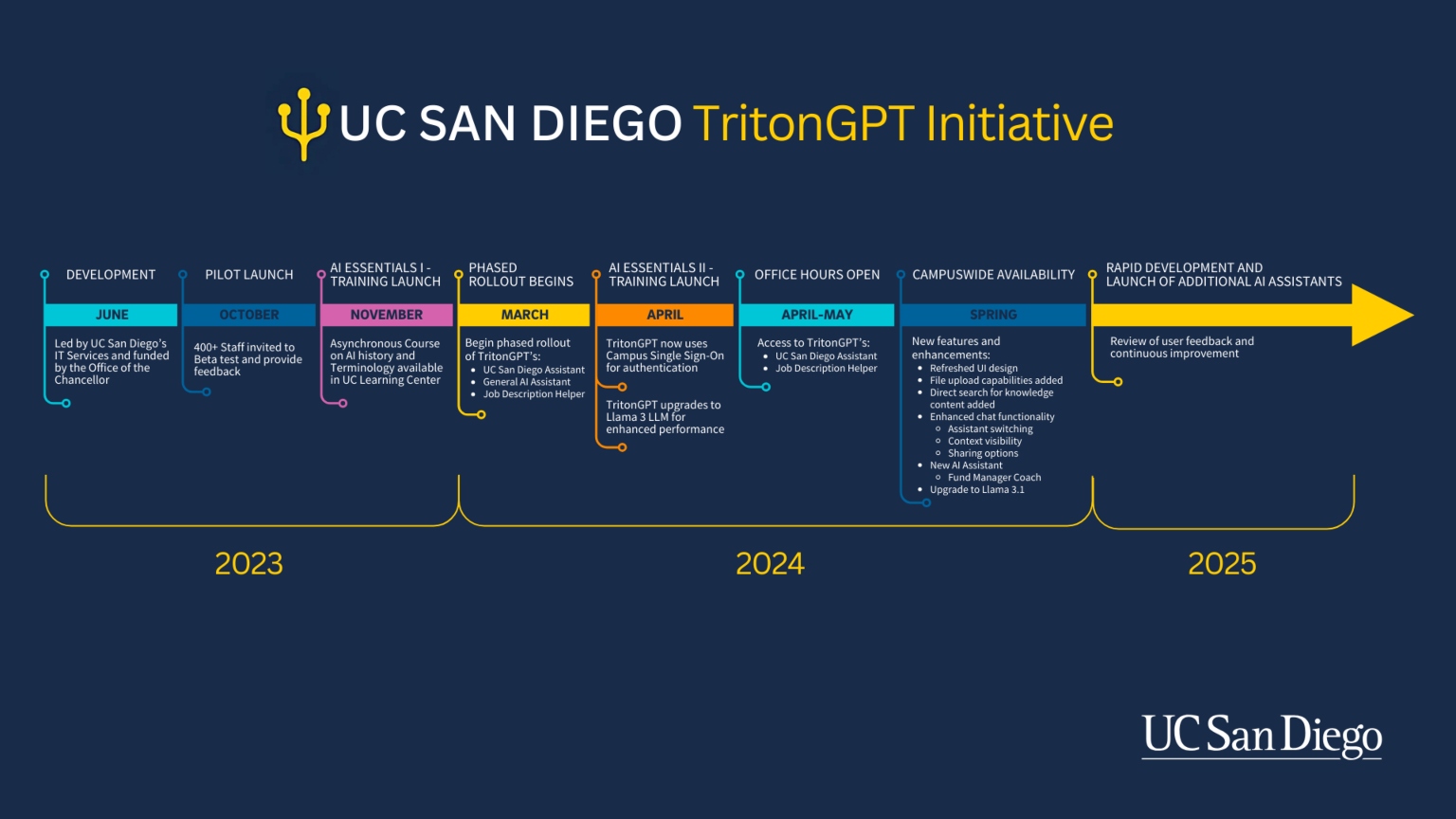TritonGPT
TritonGPT: UC San Diego Powered AI
TritonGPT operates from the secure confines of the San Diego Supercomputer Center. Using secure, on-premises hosting ensures UC San Diego's complete control over data security and privacy.
TritonGPT's Assistants are adept at handling university-specific questions, summarizing documents, and more, thanks to its training on extensive public-facing university information. This focus enables TritonGPT to provide accurate and relevant information to UC San Diego users.
TritonGPT is available to campus faculty, staff and students at no cost.
Access TritonGPT
TritonGPT access is currently available for faculty, staff, and students within UC San Diego Campus and Health Sciences.
TritonGPT Assistants
TritonGPT's specialized "Assistants" were created to meet UC San Diego's diverse needs. Each Assistant functions as a dedicated ally, trained on specific information and tasks.

Stay Informed
To receive the latest announcements and news, subscribe the TritonGPT mailing list.
Note: this page has a friendly link that's easy to remember: https://tgpt.ucsd.edu